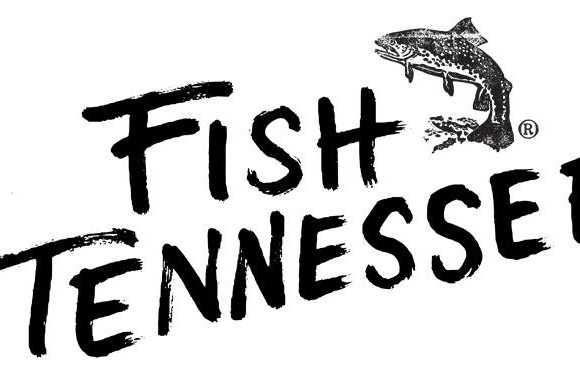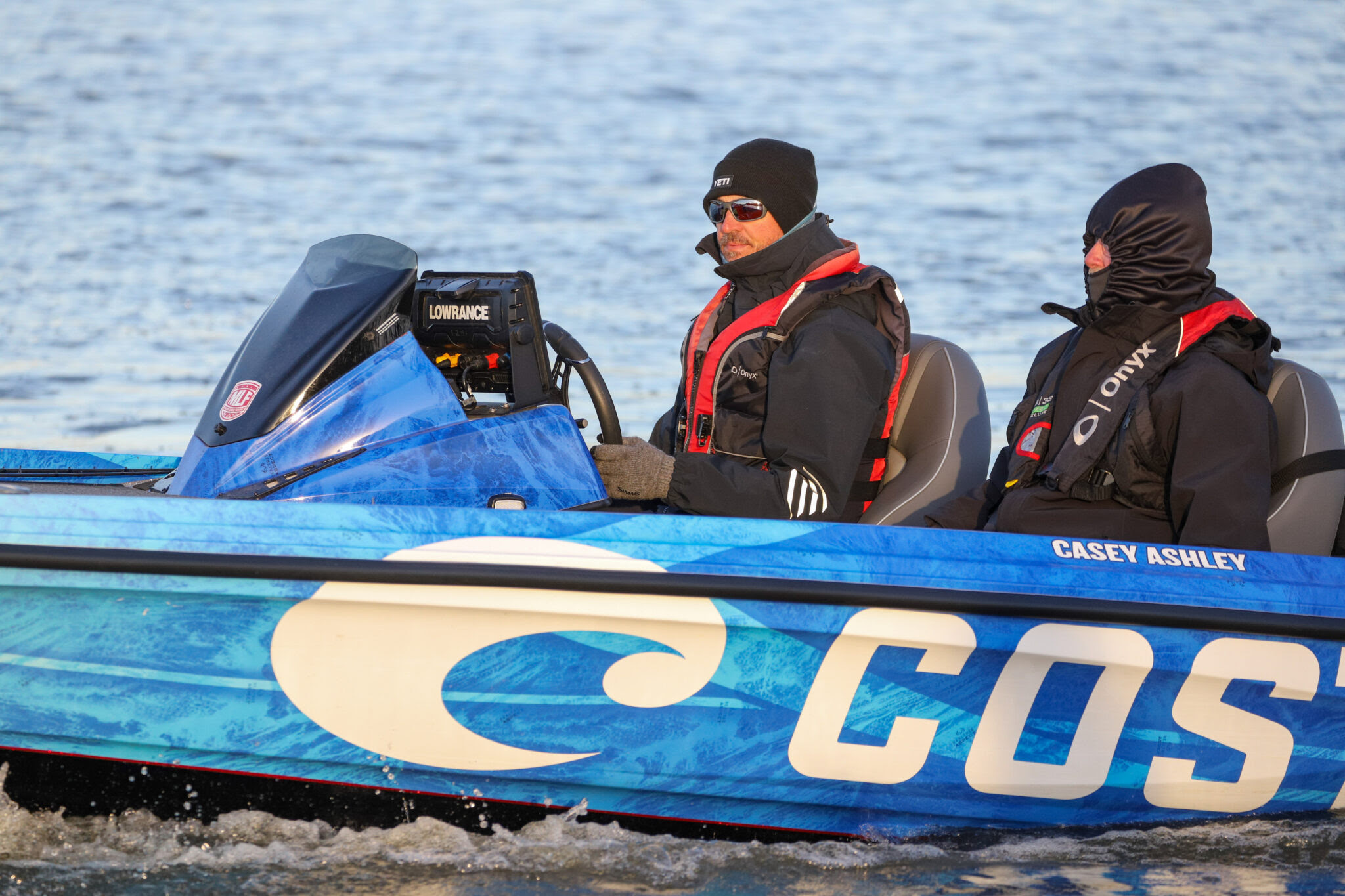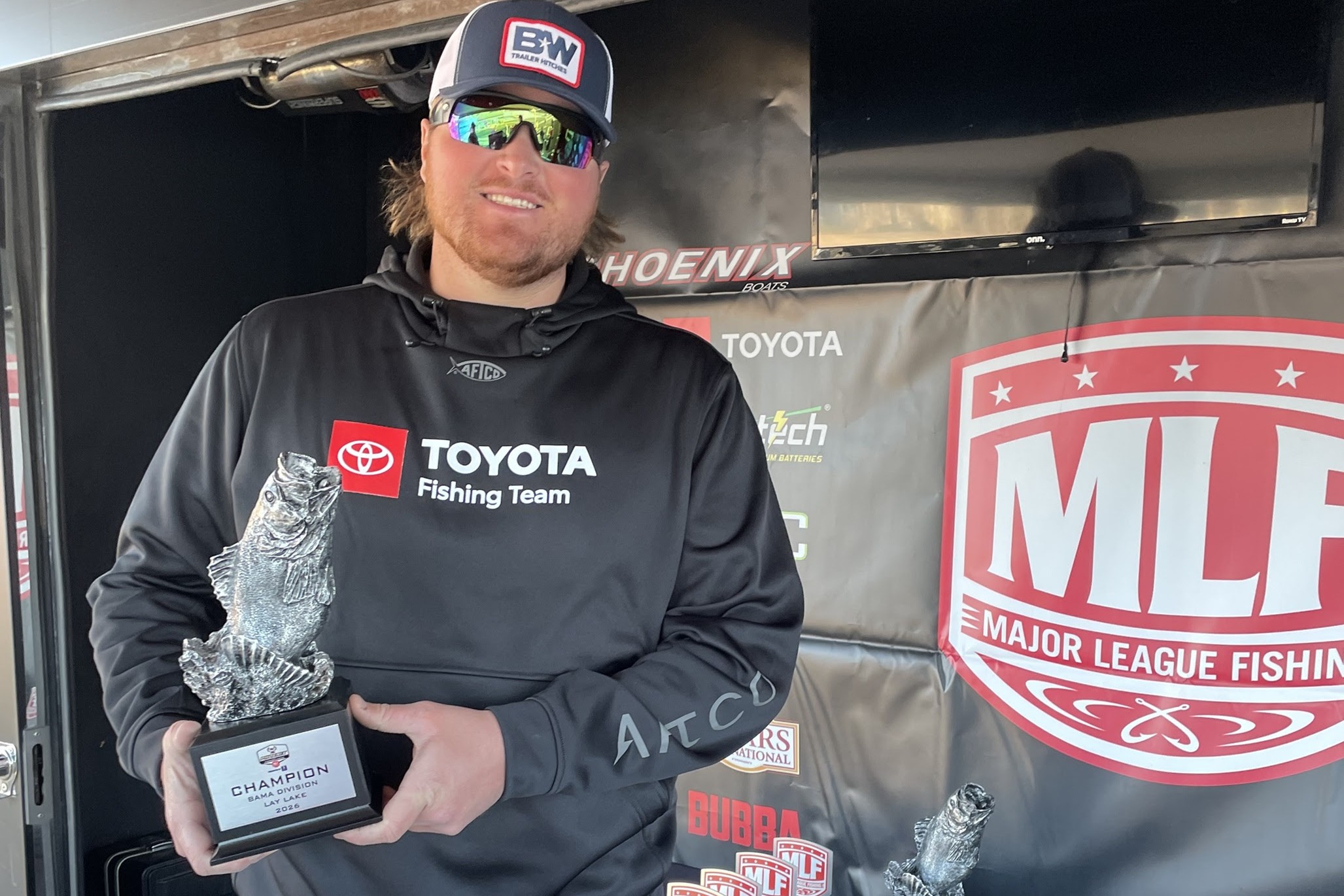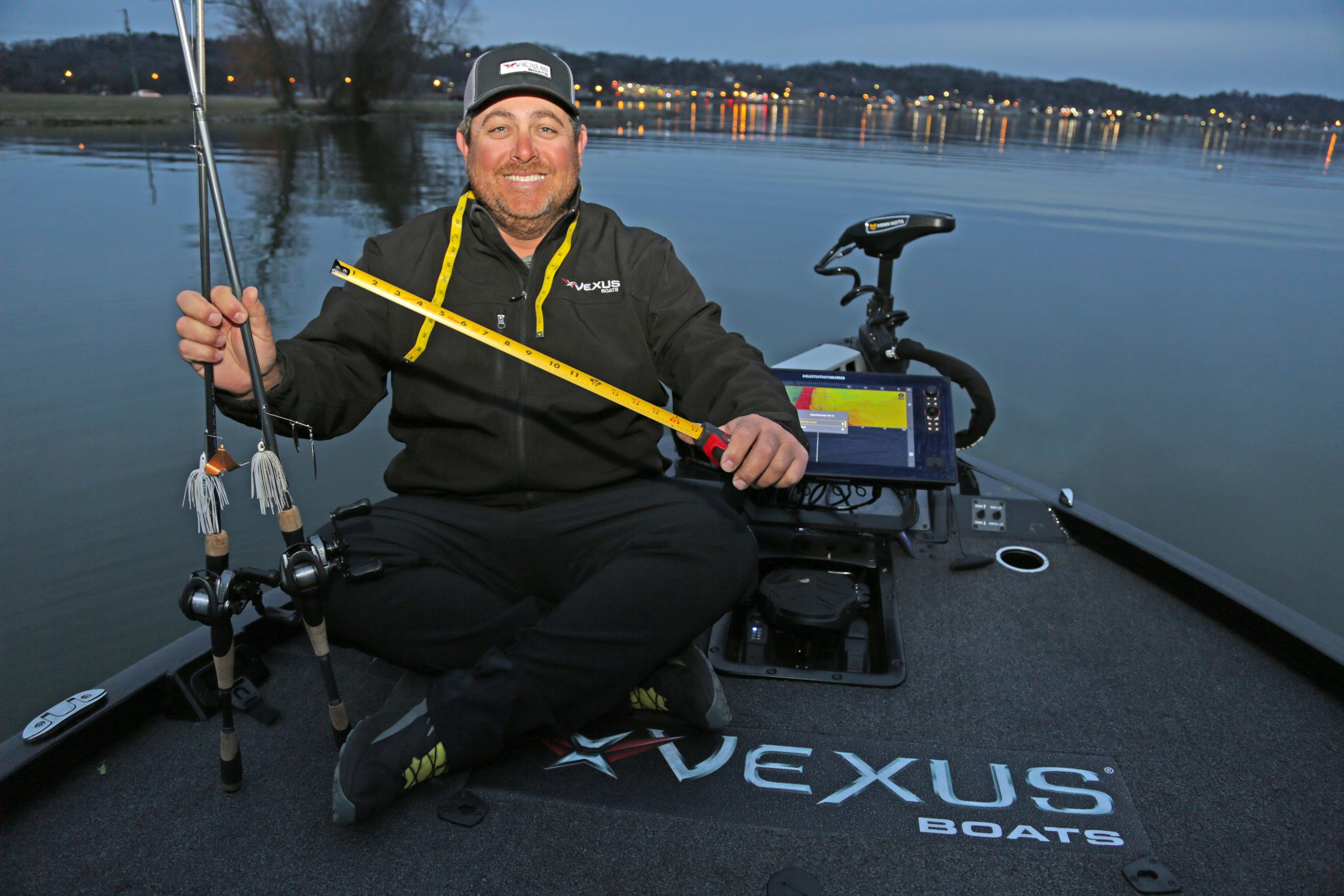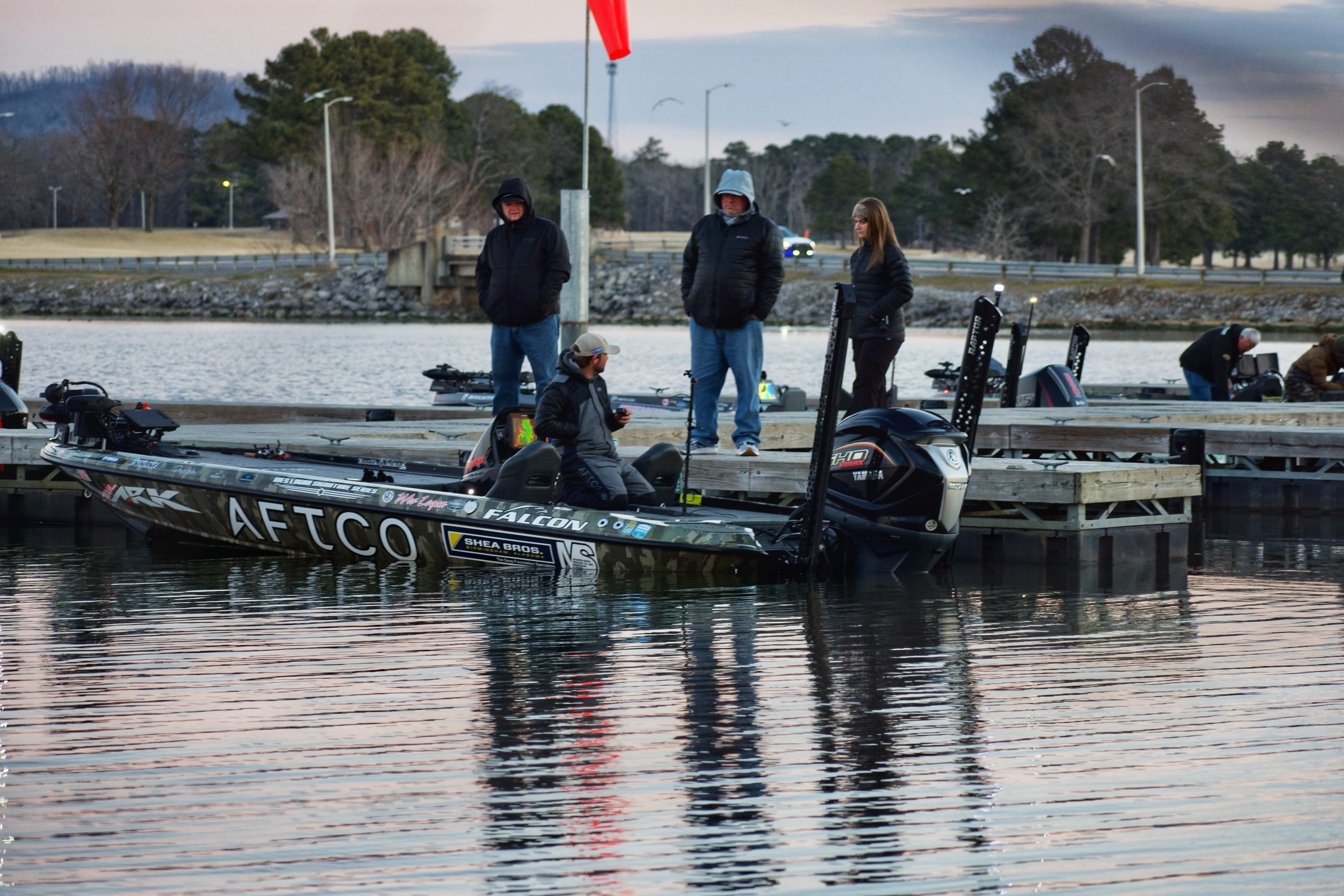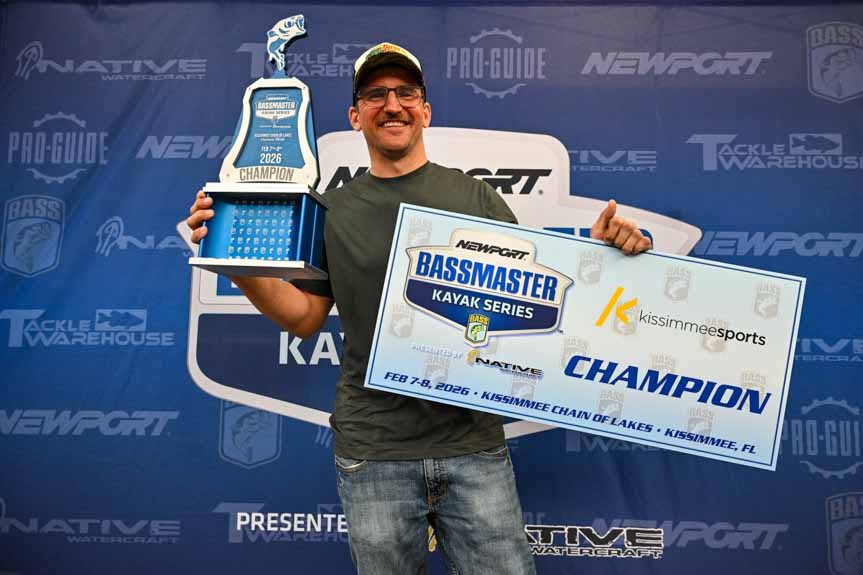Tight quarters to challenge Bassmaster Elite Series pros on Okeechobee
The 104 anglers of the Bassmaster Elite Series kick off the 2023 season at the SiteOne Bassmaster Elite at Lake Okeechobee Feb. 16-19.
Photo by James Overstreet/B.A.S.S.
February 9, 2023
OKEECHOBEE, Fla. — Of all the factors that could influence the season-opening SiteOne Bassmaster Elite at Lake Okeechobee, it might come down to supply and demand. The largest lake in the southeastern U.S., the Big O covers 734 square miles, but Bassmaster Elite Series veteran Bernie Schultzexpects only a relatively small portion to be in play.
Competition days will be Feb. 16-19 with daily takeoffs from C. Scott Driver Park at 7:30 a.m. ET and weigh-ins each day at the park at 3:30 p.m.Coverage of the weigh-ins can be streamed on Bassmaster.com.
Having pre-practiced prior to the off-limits period, Schultz found a shortage of the clear water that spawning fish will seek. The veteran pro from Gainesville, Fla., attributes this to a dramatic decrease in shallow-water vegetation.
“Water quality was a problem in a large percentage of the lake,” Schultz said. “Where there was clear water and a variety of good-quality vegetation, there was a lot of fishing pressure.
“Areas that are normally lush with vegetation were barren. There’s plenty of maidencane, flat reeds and round reeds, but those don’t filter water as well as hydrilla and eelgrass and peppergrass. A lot of that quality filtering type of vegetation has been eradicated by herbicides, and it has yielded a lot of poor conditions for a large percentage of the lake.”
On the upside, Okeechobee’s massive size always maintains productive waters, often tucked far behind outer vegetation lines. Diligent anglers who find these oases will find cooperative fish. The catch: You’ll rarely have it to yourself.
“Definitely, a couple of regions will support the bulk of the field,” Schultz said. “It may come down to someone setting up in a key area and defending it, or it may be a timing thing.”
Elite Series and local pro Scott Martin has always been clear on his belief that a lifetime of Okeechobee knowledge does not guarantee success. While he’s caught giants up to 11 pounds, 6 ounces on tournament waters, he knows he’ll be sharing the lake with 103 other competitors.
“The only home field advantage I’m going to have on this fishery is understanding how the lake fishes at its current water level and clarity,” said Martin, who grew up on Okeechobee. “Beyond that, I’m competing just like the rest of the field.”
Martin reports that the Lake Okeechobee water level held at 16.5 feet through early January and pulled back to 16.1 by month’s end. Ten days before the event, the water level was 15.96, and Martin expects it will remain just under 16 when the tournament begins. Noting that this will be one of the highest water levels for an Okeechobee tournament, he said anglers will have their work cut out for them.
“The key will be making the right decisions on areas of the lake and trying to find stuff that’s not pressured,” Martin said. “Trying to find fish in that muddy water can be challenging, but it can be very rewarding at the same time.
“Some of the guys are going to find fish in those stained-water areas and that can be the difference-maker. Those are the areas that don’t have as much pressure. The spawning areas and the clear-water areas suck all the fishermen in, and those areas have been getting pounded. So, finding areas away from all that is going to be key.”
One thing Martin stresses is that the big lake’s dynamic nature typically demands a new search each year. “Fishing history” by returning to previously productive areas will only get you in the ballpark and, with the current dearth of vegetation, will further complicate matters.
“The fish are never in the same place the next year; it’s always different,” Martin said. “There aren’t waypoints out there on the lake, there aren’t special ledges offshore, there’s not a special brushpile, there’s not a shellbar. It’s literally about fishing areas and understanding how those areas are affected by the weather.”
Unlike Northern latitudes, Florida lakes — particularly those in the state’s lower region — typically see a long, drawn-out spawning season that can last from November through May. Because the period of viable conditions can be so broad, it’s no rarity for tournaments in the year’s first quarter to find fish in multiple stages, possibly all three (prespawn, spawning, and postspawn).
If the Elite event enjoys stable weather, Martin believes anglers could find just such diversity. Those who locate bed fish will fare well with jigs or Texas-rigged creature baits, craws and stickworms. Popular search baits include bladed jigs, swim jigs, lipless crankbaits, jerkbaits, topwaters and Texas-rigged swimming worms.
“It’s definitely a deeper dive to think about the complexity of (the Florida spawn), but that’s why fishing is very consistent in Florida — you can do lots of different things,” he said. “Somebody’s catching them flipping, someone’s catching them on a worm, someone’s throwing a topwater. Those are all different types of fish.”
Considering the size of bass that call Okeechobee home, the potential exists for the Elite Series to launch a new season with a century belt winner. (The Bassmaster Century Club recognizes a 20-bass total of 100 pounds or more.) Schultz does not deny the opportunity, but he believes the current habitat situation will likely limit the output.
“I think 17 pounds a day will make the Top 10, but I don’t believe the winning weight will be much over 80 pounds,” Schultz said. “There will be too many people dividing up the fish.”
That being said, one kicker like Martin’s personal best could dramatically change someone’s situation. But while giant fish are well worth the effort, the smart game plans will focus more on daily consistency.
The full field of 104 pros will fish the first two days, with only the Top 50 advancing to Semifinal Saturday. After Saturday’s weigh-in, the Top 10 remaining pros will advance to Championship Sunday with a chance to claim the $100,000 first-place prize.
New for 2023, fans can enjoy predictions, conditions and live hits from the lake as part of the LIVE Preview show streaming on Bassmaster.comWednesday, Feb. 15 at 10 a.m. ET. Bassmaster LIVE kicks off tournament coverage Thursday and Friday mornings at 8 a.m. on Bassmaster.com, Tubi and the FOX Sports platforms while FS1 will broadcast live with the tournament leaders on Saturday and Sunday.



